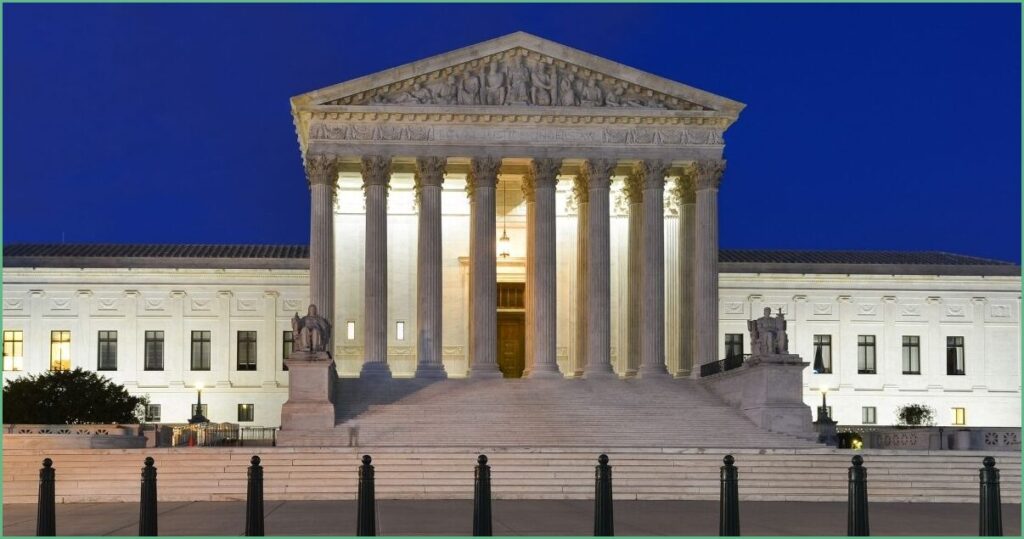The Supreme Court is about to take up a docket that will matter to every American who cares about the Constitution, liberty, and common sense. This term will test whether justices stick to original meaning or keep letting the administrative state write the rules. For Republicans, the hope is simple: get back to law and stop policymaking from the bench.
Court fights now are not abstract debates confined to legal journals; they shape everyday life from schoolrooms to smartphones. Expect cases that touch voting rules, religious liberty, speech online, and the power of federal agencies. Each decision will either steer power back toward the people and their elected representatives or hand more authority to nameless bureaucrats.
First, keep an eye on election and voting disputes. Republicans want clear rules that secure the vote without stripping citizens of access, and they see the Court as the last line of defense against state-level chaos. A ruling that reaffirms traditional election law will help restore confidence for millions who feel current systems took shortcuts.
Religious freedom cases are also front and center. Conservative voters expect judges to protect the right to live faith openly and to make reasonable accommodations when possible. When schools, hospitals, or businesses face government pressure that forces belief-based compromises, many on the right hope the Court will say enough is enough.
The rise of Big Tech and the control over speech has become a political flashpoint, and the Court will likely weigh in on how the First Amendment applies to online platforms. Republicans argue that private platforms have become the new public square, and when they censor conservative viewpoints, the effect is real and chilling. A strong ruling for free speech could force transparency and accountability that tech companies have avoided.
Another major battlefield is the administrative state and the so-called Chevron deference that lets agencies interpret the law. From conservative courts, the message has been growing loud: agencies should not get to rewrite statutes without clear congressional authorization. A decision that rolls back that deference would limit unelected officials and restore authority to the people’s representatives.
Immigration cases remain a perennial concern and this term is no different. Republicans want firm, enforceable borders and predictable rules for asylum and removal. When the Court clarifies the limits of executive discretion on immigration, it won’t just affect policy; it will decide who makes the rules and who enforces them.
Gun rights and Second Amendment questions continue to be high-stakes. Conservative voters expect the Court to treat the text of the Constitution seriously and to protect law-abiding citizens’ right to self-defense. Decisions that blunt efforts to chip away at that right will be hailed as common-sense wins for safety and liberty.
Affirmative action and race-conscious policies in higher education remain contentious and likely to resurface. Republicans argue that admissions should be based on merit and that racial preferences undercut equal treatment under the law. A ruling that rejects race-based decision-making will resonate with voters who believe opportunity should be blind to skin color.
The Court may also face cases about criminal justice and prosecutorial power, where Republicans often press for both tough enforcement and fair process. That means supporting victims, backing law enforcement, and insisting on due process for defendants. When judges balance those priorities correctly, the public gets safer streets and a system that still honors constitutional rights.
On administrative penalties and regulatory overreach, conservative justices are likely to scrutinize whether agencies can impose huge fines without clear congressional authorization. Small businesses and ordinary citizens suffer when vague rules lead to crushing penalties. The Court can bring clarity that protects entrepreneurs and limits unchecked bureaucracy.
Economic liberty cases, including challenges to federal workplace rules and licensing regimes, are another area to watch. Republicans favor freeing people from burdensome red tape that stifles innovation and job creation. A Court willing to enforce limits on regulatory expansions will be seen as defending the free market and opportunity.
What all these cases share is a question about who governs America. Is it the people, through their elected officials, or is it a patchwork of judges and bureaucrats setting policy by interpretation? For conservatives, the stakes are plainly constitutional: the signers left us a document meant to restrain power and protect liberty, and the Court must honor that design.
Finally, expect this term to influence politics as much as law. Court decisions will shape messaging, election strategies, and the public’s view of institutions. Republicans will use favorable rulings to argue for law-and-order solutions and to press for reforms that return power to voters and local communities.
